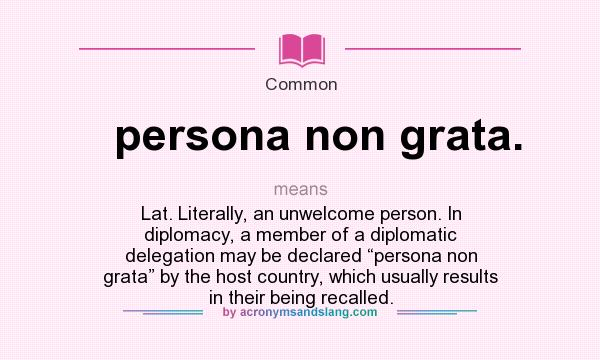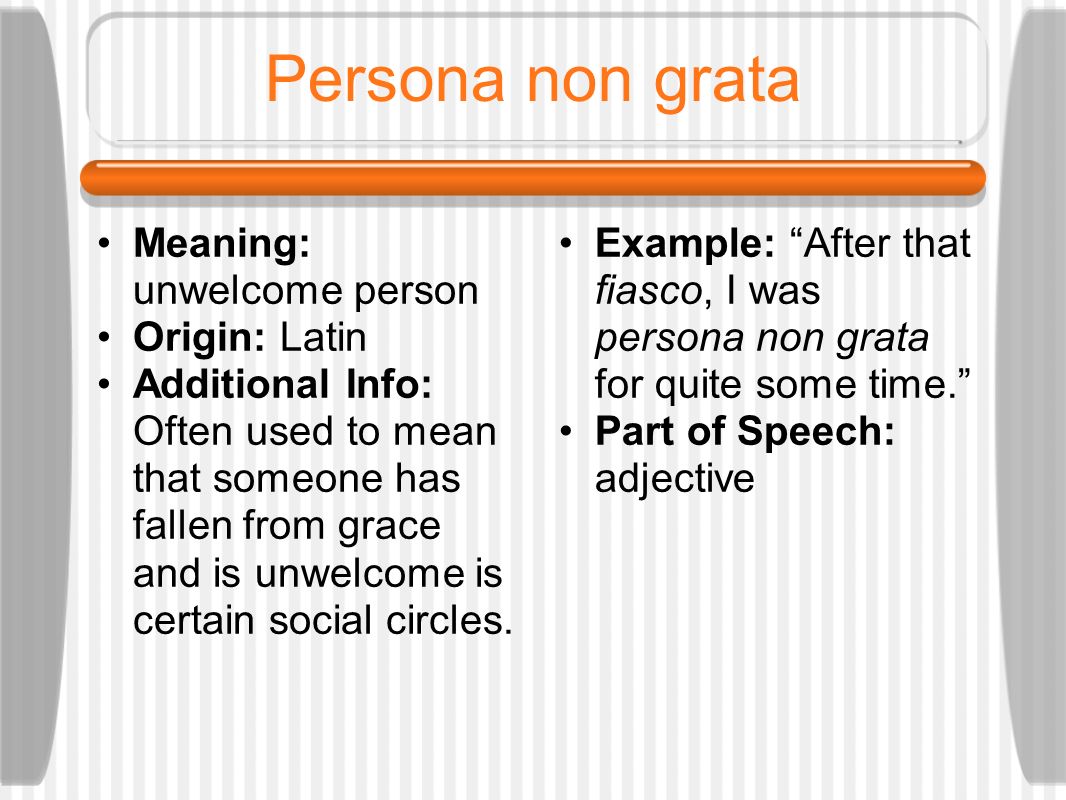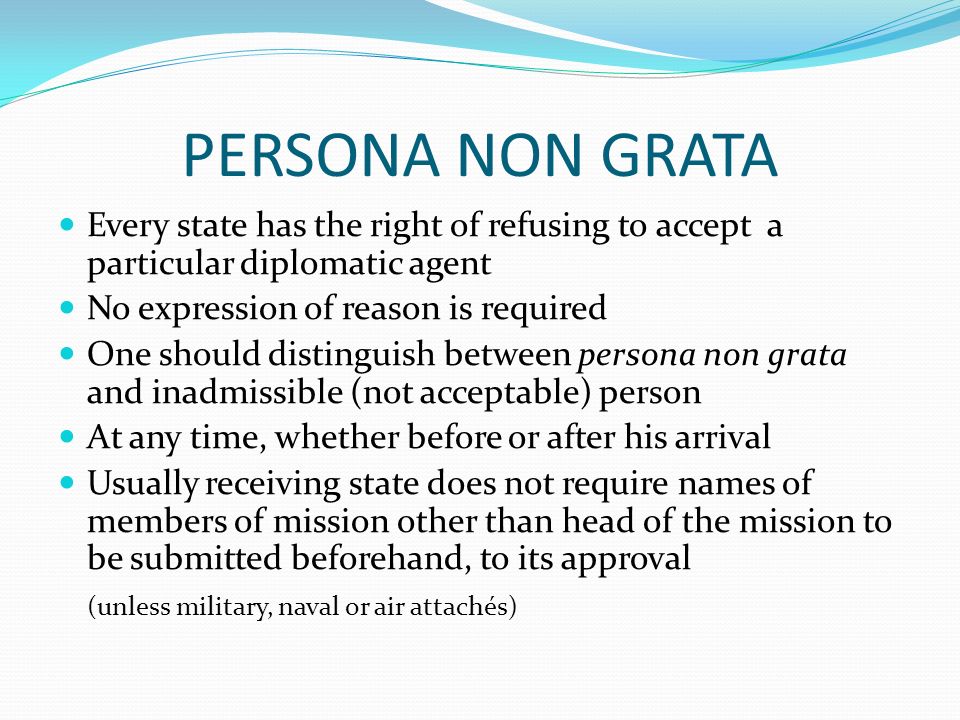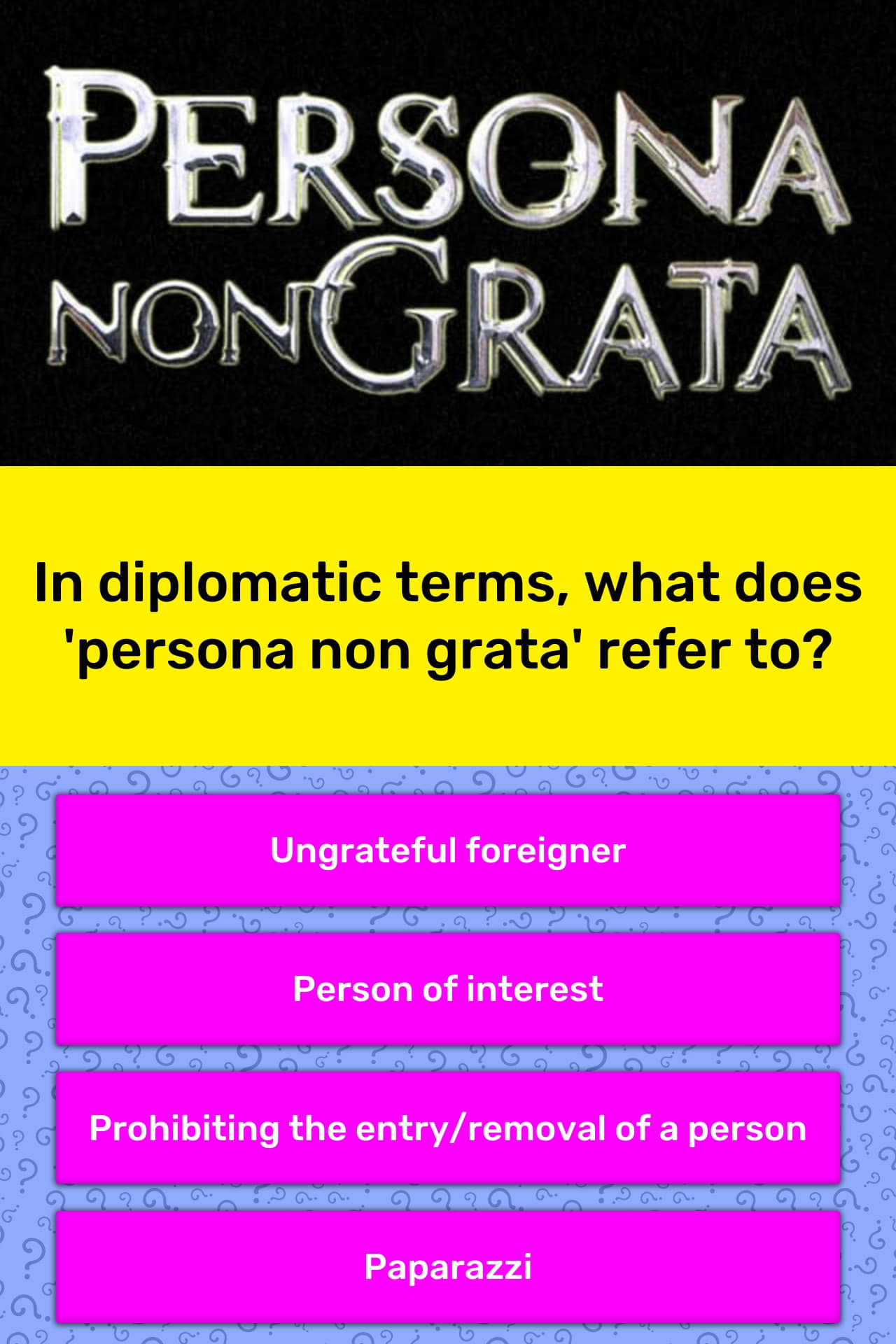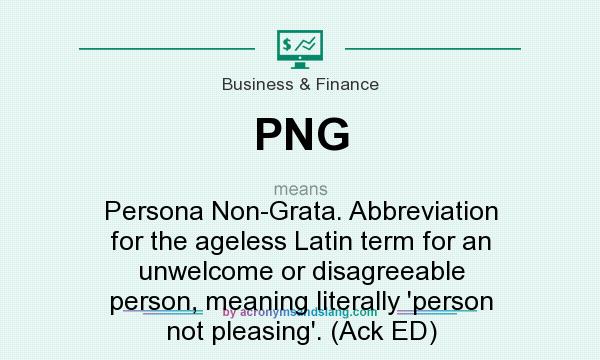What Is Persona Non Grata

Persona non grata used as a noun is rare.
What is persona non grata. In latin persona non grata means literally person not welcome and from this we can infer the loan phrase s english definition. Define persona non grata. Persona non grata definition a person who is not welcome. Meaning pronunciation translations and examples.
If someone becomes or is declared persona non grata they become unwelcome or. Per so nae non gra tae a person who is unacceptable or unwelcome especially to a foreign government. What does persona non grata mean. A person who is not wanted or welcome in a particular country because they are unacceptable to.
In diplomacy a persona non grata latin. A person who for some reason is not wanted or welcome familiarity information. It means unacceptable or unwelcome and it also works as a noun meaning an unacceptable or unwelcome person its latin plural should you ever need it is personae non gratae. Persona non grata meaning.
The persona non grata declaration is the most damning form of censure a country can bestow on foreign diplomats considering they are protected from arrests and other forms of prosecution under. He has become persona non grata in our club since his angry outburst. Persona non grata noun the noun persona non grata has 2 senses. Persona non grata definition.
A diplomat who is unacceptable to the government to which he is sent 2. This is a list of people declared persona non grata persona non grata latin plural. How to use persona non grata in a sentence. Personae non gratae is a foreign person whose entering or remaining in a particular country is prohibited by that country s government being so named is the most serious form of censure that a country can apply to foreign diplomats who are otherwise protected by diplomatic immunity from arrest and other normal kinds of.
Persona non grata definition is a person who is unacceptable or unwelcome typically used without a or the. Personae non gratae literally meaning an unwelcome person is a legal term used in diplomacy that indicates a proscription against a foreign person entering or remaining in the country.


